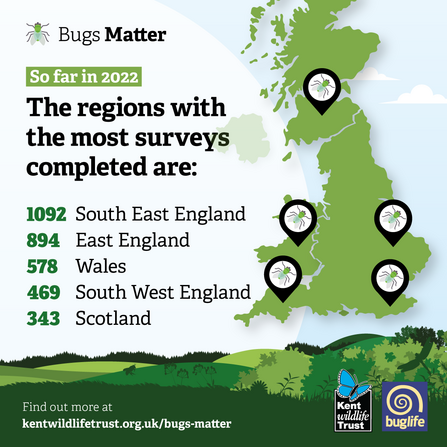So far, the overall number of journeys completed by participants in this vital citizen science project has well surpassed numbers last year, with a total of 4,750 surveys submitted compared to 4,139 at this point in the survey in 2021. Citizen scientists have been encouraged to count the number of insect splats on their vehicle number plates during their journeys this summer as a measure of how insect population numbers are faring across the UK.
The top regions of the UK with the most journeys completed are the South East with 1,092 journeys, East England with 894 journeys and Wales with 578 journeys. London and North East England have completed the fewest journeys over this year’s survey period, with 39 and 85 journeys, respectively.
The full ranked list of journeys per UK region is as follows:
- South East England: 1,092
- East England: 894
- Wales: 578
- South West England: 469
- Scotland: 343
- West Midlands: 315
- Yorkshire and The Humber: 303
- North West England: 275
- East Midlands: 267
- Northern Ireland: 88
- North East England: 85
- London: 39
